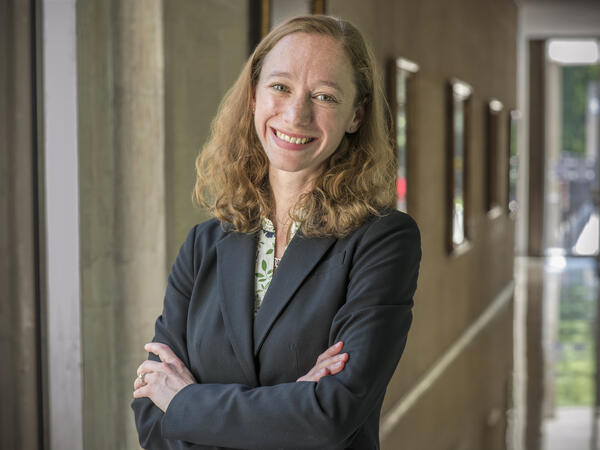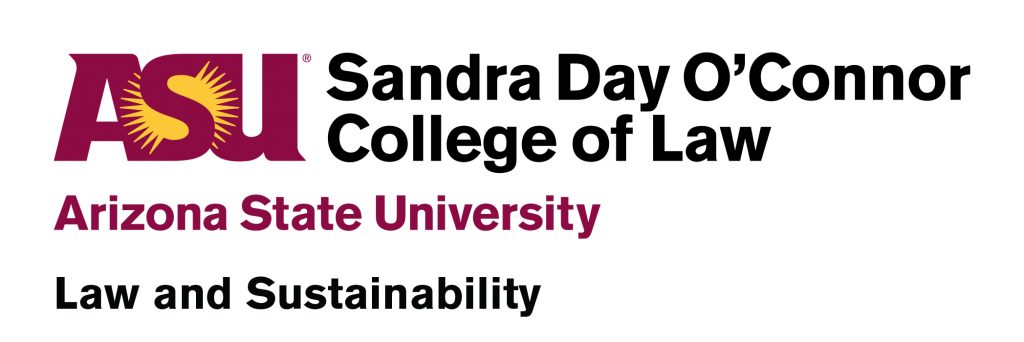About the Morrison Prize
The Morrison Prize is a $10,000 award presented annually to the author(s) of the most impactful sustainability-related legal academic paper published in North America during the previous year.
Eligibility
The Morrison Prize contest is open to full-time law professors who have published environmental sustainability-related papers in printed U.S. or Canadian legal academic journals during the contest period. The contest is not open to students. All papers appearing in a qualifying journal’s final 2024 issue or in an issue printed and circulated prior to December 15, 2025, fall within the 2026 contest period. Works-in-progress and papers that are not published before the deadline are not eligible.
Law journal articles focused on topics in environmental law, water law, energy law, natural resources law, land use law, disaster law, climate change law, or agricultural law meet the subject matter requirements for eligibility.
Judging process and criteria
The Morrison Prize seeks to recognize the paper published within the eligibility period that is likely to have the most significant positive long-term impact on the advancement of the environmental sustainability movement. All eligible papers entered into the prize contest will undergo independent review and scoring by a diverse group of full-time law professors who teach in environmental sustainability-related areas at four different accredited North American law schools.
The contest scoring system focuses primarily on a paper’s quality and originality of analysis and potential for real-world impact on policy developments directly related to environmental sustainability goals.
ASU Law will announce the 2026 Morrison Prize winner in February of 2026. The winner must present the winning paper at the Tenth Annual SRP Sustainability Conference of American Legal Educators in Spring of 2026 to claim the cash prize.
2026 submissions instructions
To enter the 2026 Morrison Prize contest, complete both steps below before Wednesday, December 31, 2025.
Step 1
Submit your information through our online form.
Step 2
Mail a cover letter and five (5) offprints of your qualifying paper to:
2026 Morrison Prize Contest
c/o: Zachary Cooper
Sandra Day O’Connor College of Law
Arizona State University
111 E. Taylor Street, Mail Code 9520
Phoenix, AZ 85004-4467
Entries postmarked by the deadline will be accepted. Nominations of Colleagues’ or peers’ articles are welcome but must include five (5) offprints. For any questions regarding the contest, please contact Troy Rule at 480-965-9553 or via Troy.Rule@asu.edu.
2025 Morrison Prize Winner

Alison Gocke
Congratulations to Alison Gocke, Associate Professor of Law at the University of Virginia School of Law, on winning ASU’s 2025 Morrison Prize For her entry Public Utility’s Potential, 133 Yale L.J. 2773 (2024).
ASU Law’s Morrison Prize honors professor for sustainable energy policy research
Alison Gocke, associate professor of law at the University of Virginia School of Law, has been awarded the 10th annual Morrison Prize for her Yale Law Journal article, Public Utility’s Potential.
The Morrison Prize is a $10,000 prize awarded to the most influential environmental sustainability-focused law journal article published in North America during the previous year. Sustainability-focused professors from four law schools independently judge all entries to identify the winner each year. The prize is hosted and managed by ASU’s Law and Sustainability program.
Professor Gocke’s article argues that state public utility commissions have significant potential to lead the clean-energy transition and tackle climate change. She challenges the traditional divide between energy and environmental law, suggesting that environmental policy goals can be effectively pursued through energy regulation. Her article draws on New York City’s 1940s and 1950s transition from coal to natural gas, led by the city’s Public Service Commission, to illustrate how public utility commissions can play a transformative role in environmental policy. She ultimately contends that modern commissions’ reluctance to engage in the clean-energy transition is driven by structural and political factors, not legal limitations.
